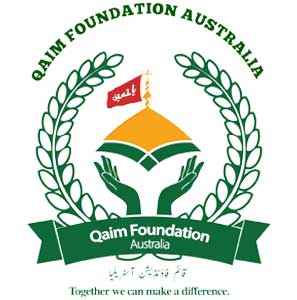THE TENTH OF ZILHAJJ
The tenth of ZILHAJJ is the ‘Id al-Adha (The feast of immolation) Day. A number of acts has been narrated to be done on this honorable day. They are as follows:
First: It is highly recommended to bathe oneself on this day. In fact, some scholars have decided it as obligatory.
Second: Salat al-’Id, as is described within the acts on the ‘Id al-Fitr Day, should be offered on this day. However, on the tenth of ZILHAJJ, it is recommended to break the fasting after offering Salat al-’Id and it is recommended to eat from the meat of the sacrificed animals.
Third: It is recommended to say the supplications that are reported to be said before and after Salat al-’Id. These supplications are mentioned in the book of Iqbal al-A’mal. At any rate, the most important of these supplications is the supplication No. 48 of al-Sahifah al-Kamilah al-Sajjadiyyah, which begins with “Allahumma hadha yawmun mubarakun… (O Allah, This is a blessed day…).” It is also recommended to say the supplication No. 46 of the same book, which begins with “ya man yarhamu man la yarhamuhu’l-ibad… (O He Who has mercy upon him whom is not compassionated by the servants…)”
Fourth: It is recommended to say Dua al-Nudbah (The Supplication of Lamentation), which will be cited in this book.
Fifth: It is confirmedly recommended to offer a sacrifice, which is to slaughter an animal.
Sixth: As for those who are present at Mina,it is recommended to say the following doxological statements fifteen times immediately after the accomplishment of fifteen obligatory prayers beginning with the Zohr Prayer on the ‘Id al-Adha Day and ending up with the Fajr Prayer on the thirteenth of ZILHAJJ. As for those who are at places other than Mina, it is recommended to say these statements ten times instead of fifteen immediately after ten obligatory prayers beginning with the Zohr Prayer on the ‘Id al-Adha Day and ending up with the Fajr Prayer on the twelfth of ZILHAJJ. These statements, according to the authentic narration mentioned in al-Kafi, are as follows:
اللّٰهُ اَكْبَرُ اللّٰهُ اَكْبَرُ لا اِلَهَ اِلا اللّٰهُ وَ اللّٰهُ اَكْبَرُ اللّٰهُ اَكْبَرُ وَ لِلَّهِ الْحَمْدُ اللّٰهُ اَكْبَرُ عَلَى مَا هَدَانَا اللّٰهُ اَكْبَرُ عَلَى مَا رَزَقَنَا مِنْ بَهِيمَةِ الْاَنْعَامِ وَ الْحَمْدُ لِلَّهِ عَلَى مَا اَبْلانَا .
It is recommended to repeat these statements immediately after the obligatory and supererogatory prayers as many times as possible.
